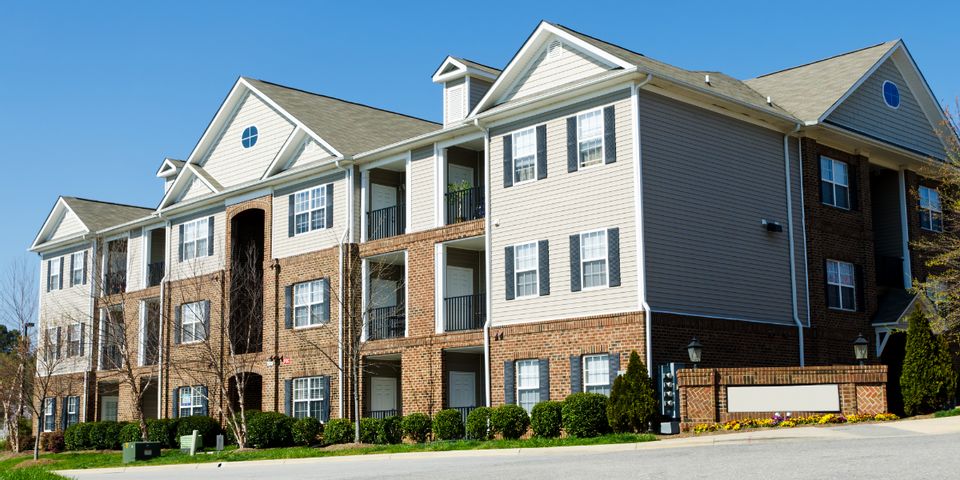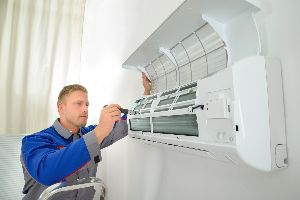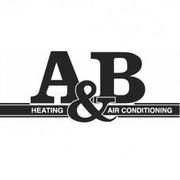A Guide to HVAC Systems for Apartments

The type of HVAC system best suited to an apartment depends on several important factors, including the size of the property, its location, and your health needs. HVAC systems for apartments are typically either centralized or decentralized, and it’s important to understand some problems which can arise with apartment-style housing. In the guide below, find out more about the best options and what to look out for.
Centralized HVAC Options for Apartments
Centralized systems are run from a single location in a building, such as a mechanical or maintenance room where the main air conditioning unit can be positioned. Common configurations for centralized systems include four-pipe or geothermal arrangements. Four-pipe systems use two supply and two return lines, controlling air temperatures through cool or hot water in the accompanying pipes.
Geothermal HVAC systems use heat transfers between the ground and the air to heat and cool homes. While these can be costly to install, they can offer significant long-term savings. In fact, geothermal HVAC systems are one of the most energy-efficient options available, cutting energy consumption by as much as 30%.
Decentralized HVAC Options for Apartments
Decentralized HVAC systems are dedicated to individual apartments rather than building-wide systems, offering greater flexibility. These are commonly available as either self-contained systems or packaged terminal air conditioners.

Self-contained systems are essentially miniaturized forced-air units that contain both heating and cooling components for a single apartment. Because they’re installed separately in each unit, they offer easy access for maintenance and servicing. For smaller apartments, these tend to be both simpler and more affordable to install and maintain.
Packaged terminal air conditioners, or PTACs, are commonly seen beneath windows in apartments and hotels. These require a hole to be cut into a wall to ensure a ready supply of air, making their installation more labor-intensive. However, due to their lower unit cost, they’re also one of the most affordable options available.
Common Apartment HVAC Problems
Some HVAC issues typically seen in apartments include poor air circulation, excessive humidity, and more concentrated irritants. Free-flowing air is essential for air quality because circulation will help regulate the number of pollutants and allergens present. To counter poor circulation, keep the windows open as much as possible to allow fresh air in.
Because bathrooms and kitchens tend to be closer to living areas in apartments, humidity can become excessive. This can trap mold, mildew, and airborne illnesses that thrive in warm, moist air, so consider a compact dehumidifier to keep humidity to acceptable levels.
Finally, exposure to irritants and illness-causing organisms can be much greater in an apartment’s smaller area. To counter this problem, clean often and thoroughly, checking for dust, moisture, and decomposing materials such as food.
To explore the best HVAC systems for your apartment, contact A & B Heating & Air Conditioning in Burlington, KY. These HVAC professionals offer services, repairs, and installation for air conditioners, furnaces, humidifiers, and more. Find out more by calling (859) 525-0100 or visiting them online.
About the Business
Have a question? Ask the experts!
Send your question

